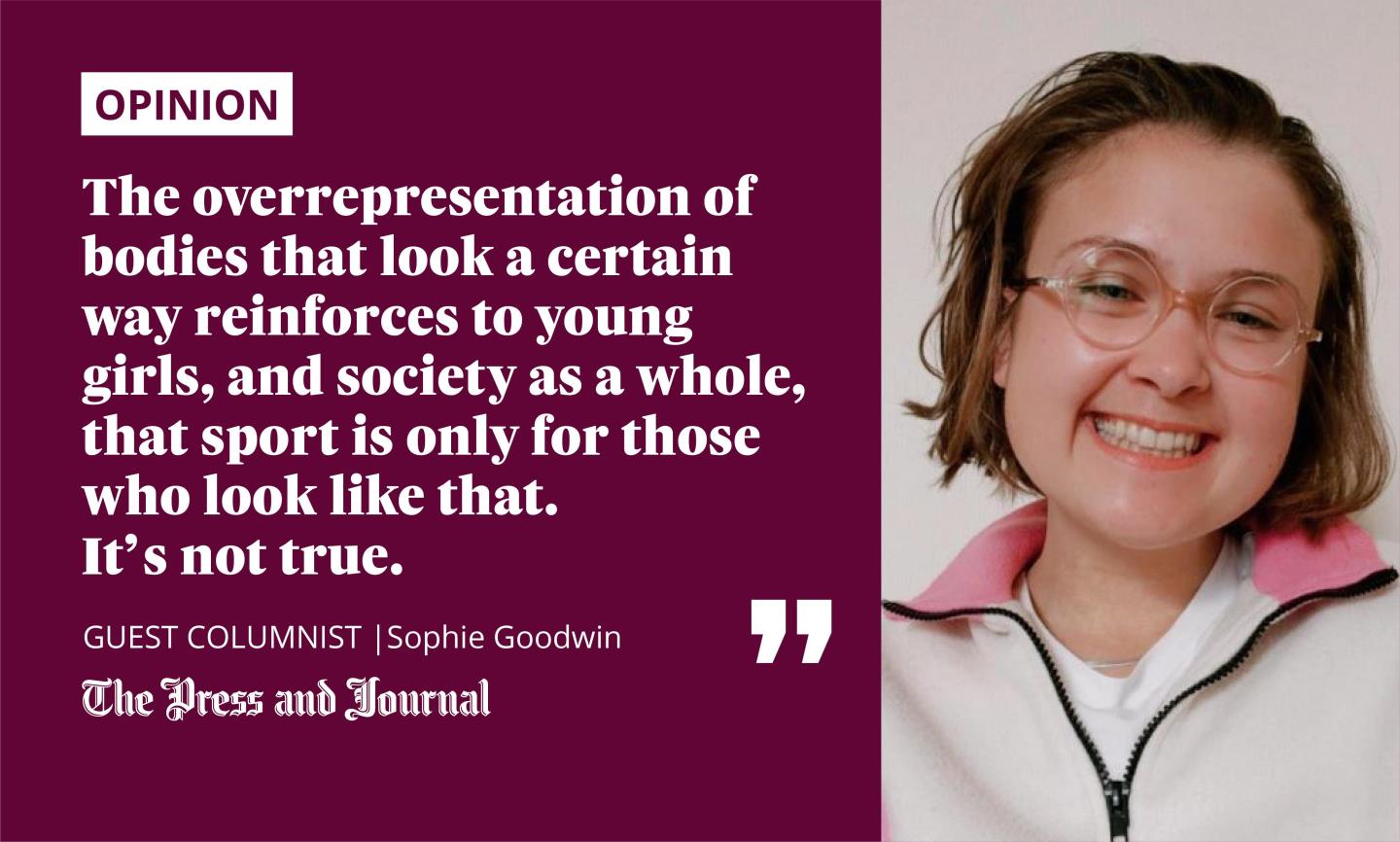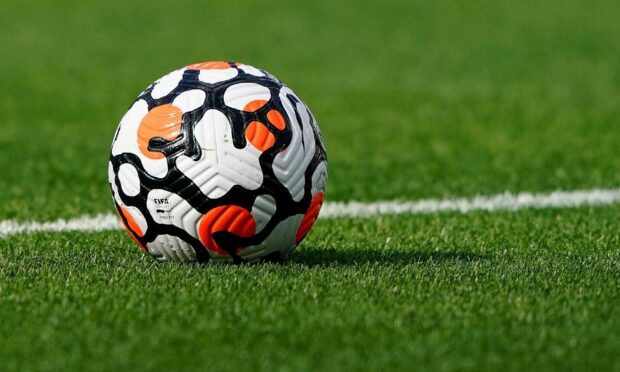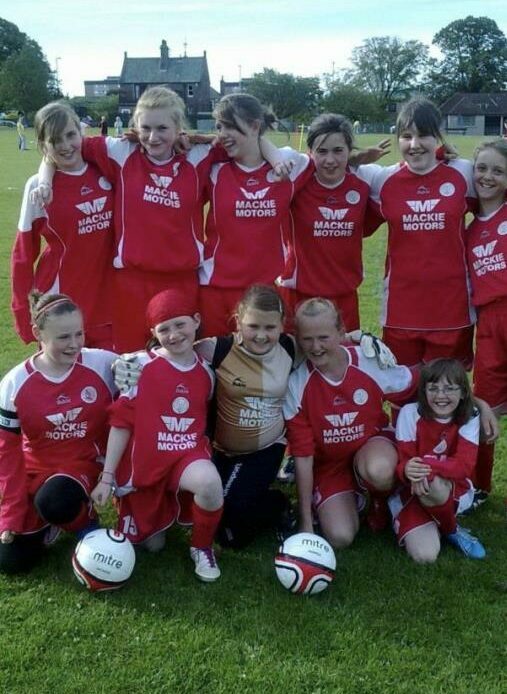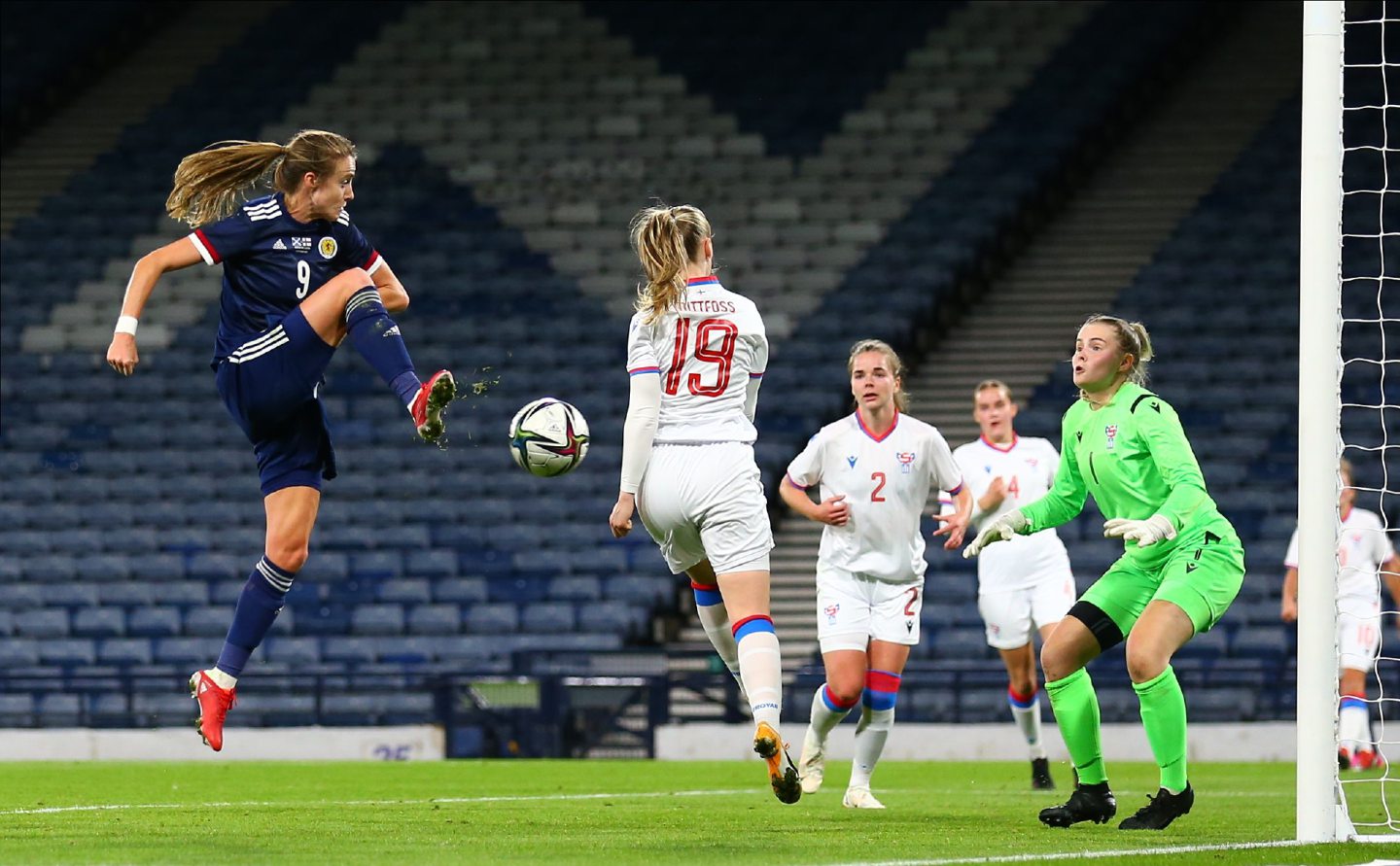This week is Scottish Women and Girls in Sport Week, which aims to encourage more women to participate while breaking down the toxic barriers that exist for them in sport.
One such barrier is body image, something 78% of British female elite athletes struggle with.
While I might not be an elite athlete, I grew up playing football, with my body under scrutiny from when I started at 10 years old until I hung up my boots.

My primary school team needed a goalkeeper and I, the shortest child in my year group, was up for the challenge. I was told “no” for being too short, but as a persistent child, I got my way and never looked back, except when I was picking the ball out of the net.
From the school team, I went on to play for my local club, donning the gloves every Saturday morning, with a score line of 10-0 or under being cause for celebration. Admittedly, I wasn’t very good that first year I played, but I loved it, and for me that’s what it was about.
Boys from school attended games to bully me
My love for the game never waned, even when I became subject to abuse from boys who came to watch us play.
I went to the same school as those boys, but I doubt they even knew my name. Yet, they came to our match and tried to humiliate me. It was only me.
I was singled out, because I was the slightly bigger kid on the pitch. I know that because they ridiculed me about my weight, calling me a pig and shouting “fatty” as I stood in the goals trying not to cry. It wasn’t a one time thing – the same boy came to my matches several times, hurling the same insults at me and only me.
I was a little bigger than my friends, but I had never cared nor had I ever even thought about it. But at 12 years old I was forced to consider that my body didn’t match society’s standards or expectations of someone who played sport.
I was made to feel ashamed of my body
The insults stopped eventually, but they left a mark, leaving me feeling guilty that my body was to be ashamed of, due to it being different to those that I shared the pitch with.
Those thoughts never went away, even as I continued playing football through university and senior women’s football. In fact, they were amplified when I started playing women’s football.
I wanted to get fitter because of the higher quality of the game, but that ambition only set me on a downwards spiral.
I started going out running and tried to eat better, which resulted in me losing a bit of weight. Remarks like “you look great” or “you’re looking healthy” ensued and made me feel as if I was on the right track.
It was naive to think that I only wanted to get fitter. Losing weight made me feel that, for the first time, I fit the mould of what a sportsperson should look like. It never occurred to me that such a mould doesn’t exist.
I continued to “try to get fitter”, forcing myself to exercise and count the calories of every morsel of food that I put into my mouth, striving for the perfect body. I went back to football after some time off over the summer and was told by a coach that I “looked much healthier” and how that would help me on the pitch.
His comment reinforced to me that my value as a sportsperson and as an asset on the pitch was first and foremost determined by how I looked. It spurred me on to lose more weight, even when I had no more to lose.
Left a shell of my former self
Six months after deciding to get fitter, and just before my 20th birthday, I was diagnosed with anorexia. I had lost over half of my body weight in only six months. I starved my body to the point where it could no longer cope.
I went for tests to make sure that I had caused no permanent damage to my heart and bones. I was left with a body that was physically incapable of walking up stairs, never mind playing football for 90 minutes.
Even when I had a body that resembled that of an athlete, it was never enough and I pushed my body to the brink of life and death
I was a shell of my former self, both physically and mentally. I had to leave university and move back home to continue my studies, so that my parents could monitor my recovery. I ruined the lives of those around me as they had to watch me starve myself.
My life was completely decimated, all because of trying to fit into a construct that doesn’t exist. Even when I had a body that resembled that of an athlete, it was never enough and I pushed my body to the brink of life and death.
Society has a responsibility to empower girls and women
The attitude I had towards my body never stemmed from me – it was the result of the societal pressures placed upon women and their bodies. If I hadn’t been ridiculed for my weight as a young girl and in my teens, I don’t think I would have become ill.
The overrepresentation of bodies that look a certain way reinforces to young girls, and society as a whole, that sport is only for those who look like that. It’s not true.
Our bodies are so much more than what they look like, big or small. Our bodies give us the power to win, become world champions and reach sporting heights of the highest degree.
We have a responsibility to empower our girls and women, not make them feel as if they are not worthy.
I hope we can use the likes of Scottish Women and Girls in Sport Week to remind ourselves of the pressures women face and take action against them.
If you are struggling with body image or an eating disorder, you can phone Beat Eating Disorders on 0808 801 0432, email scotlandhelp@beateatingdisorders.org.uk or visit their websiteSophie Goodwin is a sports journalist for the Evening Express and Press & Journal


